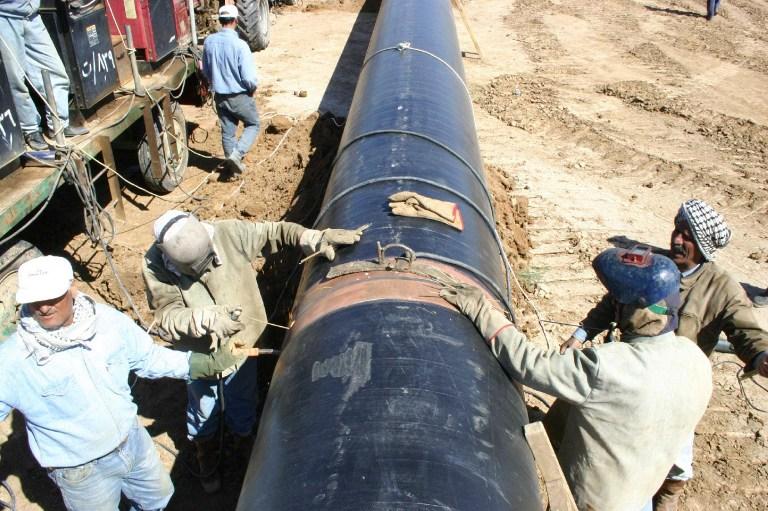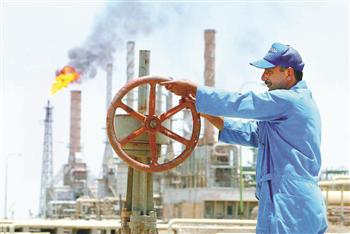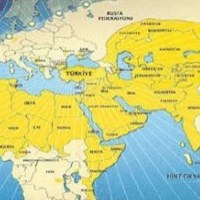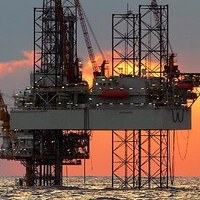![]()
Wed, Jan 30, 2013 | By Ben Welch
This article was first published in the Turkey Analyst, vol. 6 no. 2 (www.turkeyanalyst.org), a biweekly publication of the Central Asia-Caucasus Institute & Silk Road Studies Program Joint Center. © Central Asia-Caucasus Institute & Silk Road Studies Program Joint Center, 2013.
Much is made of the grand strategy of the Turkish-Kurdish energy puzzle, particularly by those focused on the geopolitical concept of Turkey as post-Cold War Europe’s energy ‘hub’ — a role which has had increasing prominence since the nascence of the Baku-Tbilisi-Ceyhan pipeline in the early 1990s. However, at the heart of the matter is something more pressing — Turkey’s need to find sustainable and secure energy to perpetuate its decade-long growth-spurt. This is supported by Ankara’s desire to turn its infrastructure, and Istanbul’s financial markets, into a sophisticated regional energy trading centre.
Background
The Kurdistan Regional Government’s (KRG) reserves appear modest in comparison with other regional energy producers; with known reserves in the region of 12 billion barrels of oil and 22 trillion cubic feet of gas, and official KRG estimates (excluding Kirkuk) ranging as high as 45 billion barrels of oil and 200 trillion cubic feet of gas. However, the possibility of easy export to Turkey either through existing pipelines, or through the creation of new export routes, is an interesting prospect for Ankara.
With the KRG’s stated aim of increasing daily production to 1 million barrels by 2015, up from c. 200,000 in 2012, prospects are sufficiently tantalizing to have captured the attention of the international investment, and security, communities. With a recent announcement by the regional government that it plans to create a northern energy corridor for Iraq, with a capacity of up to 3 million barrels a day moving from Iraq to Turkey and possibly beyond, the opportunity looks yet more enticing.
As Turkey’s ruling Justice and Development Party (AKP) eyes its ‘2023’ targets to celebrate the 100th anniversary of the Turkish republic, there is some way yet to go. This is demonstrated by Turkey’s intention of becoming one of the world’s ten largest economies, with per capita GDP of $25,000, by 2023. With per capita GDP at $10,524 in 2011, the scale of the ambition is considerable.
Growth, which will enable the country to meet the AKP’s ambitious targets and should be a vital element underpinning the government’s electoral narrative in the coming months and years, will be partly reliant on the continued regular provision of inexpensive energy and electricity. Turkey’s reliance on imported hydrocarbons makes this a complicated path for the government to tread. EIA data for 2011 show the difficulty clearly: Turkey imported 92 percent of its oil and 98 percent of its natural gas. To underline the complex international relations required to support this import regime, in the same year approximately 51 percent of Turkey’s oil came from Iran and 55 percent of its natural gas from Russia.
Furthermore, Turkey’s dependency on energy imports for sustainable growth, and associated increases in electricity demand, negatively impacts its current account balance. Its deficit is one of the main threats to Turkey’s macroeconomic stability, the magnitude of which is positively correlated with small changes in the price of a barrel of oil. While the deficit decreased significantly in 2012, increased economic activity may see the end to the tightening. With the chances of an upgrade of Turkish sovereign debt to investment grade seemingly stronger than ever, a resurgent current account deficit is something which Ankara will hope to avoid.
Linked to this, both policy makers and the market are well aware of the potential electricity supply shortages in the medium to long-term if demand increases at the current and projected rates of around 7 percent or 8 percent a year. Reports in 2011 indicated that this shortfall could occur as soon as 2016 — meaning not only a need to increase Turkey’s energy sources, but also requiring development of generation and distribution capacity. With (potentially conservative) projections for 3.5 percent GDP growth in 2013, and figures which may trump those of neighbouring European markets seemingly possible until 2017, the chance for this demand ceiling to be breached seems increasingly probable.
In addressing this challenge, Ankara is seeking to develop new sources of energy, both domestic and foreign, while working on the comprehensive liberalization of the domestic energy market — opening it up to greater competition, while also bringing Turkish energy legislation more closely in line with the EU.
Ankara’s intention to develop renewable and nuclear resources is far-looking, but has the problem of the associated time-lag of developing either the nuclear plants, or the development of a grid capable of managing varying forms of fluctuating energy provision, and may result in a short-fall in capacity. In the short-term, and despite the development of new coal-fired plants, this could mean a continued reliance on imported hydrocarbons. To meet this, Ankara seems likely to have to search widely to meet its burgeoning demand for energy and diversify its sources.
Implications
Sitting in the background of this diversification play has been the development of relations with Erbil, the capital of the KRG Begun in earnest in October 2009, when Turkey’s Foreign Minister Ahmet Davutoğlu first visited Iraq’s Kurdish region and met both president and Prime minister Barzani, the relationship with the KRG has developed rapidly. The subsequent opening of Turkish consulates-general in Basra, Erbil and Mosul in March 2011 marked a significant development in Ankara’s approach to Iraq.
The consul general chosen to head Turkey’s presence in Erbil, Aydın Selcen, has a career which indicates Ankara’s nuanced understanding of the key audiences its presence in the KRG needs to address. Selcen served as chargé d’affaires in the Turkish Embassy in Baghdad between 2005 and 2006, and has since worked at the Turkish Embassy in Washington, DC and a home posting in Ankara. The importance of this was underlined by the visit of Prime Minister Erdoğan at the end of March 2011, the first time a Turkish prime minister had visited the Iraqi Kurdish region. This was prefaced by a visit to Najaf where Erdoğan, accompanied by a number of senior Turkish ministers, met Ayatollah Ali al-Sistani.
With demand must come supply — the presence of small energy exploration companies, including DNO, Genel Enerji, and Gulf Keystone, makes the development of the market a possibility. Genel’s senior management has made no secret of the scale of their ambitions; initially to export oil to Turkey, with the intention to follow this with gas in 2015. These ambitions could be supported by their desire for a pipeline which operates free of Iraq’s political control, which would connect Genel’s fields in northern Iraq to Ceyhan, Turkey. On May 20 2012, Turkish and KRG representatives announced a new arrangement on energy exports at a conference in Erbil.
With a potential capacity of 1 million barrels a day, a new KRG pipeline could more than meet current daily Turkish oil consumption (according to EIA data: 646,000 barrels a day in 2010, down from a peak of 703,000 in 2009), and might provide long-run import security for Ankara while allowing Turkey to capitalize on the trading potential of its other oil and gas pipelines in European markets. The first phase of pipeline construction was supposed to be completed by October 2012, with the second phase due in August 2013. Another pipeline is slated for completion by 2014. The KRG’s Natural Resource Minister Ashti Hawrami emphasized the intention to build a new pipeline for natural gas by 2015 (significant given Turkey’s high levels of gas consumption), which could run independently of Baghdad.
Baghdad balked at this announcement, arguing, not for the first time, that Erbil was acting illegally. The subsequent turnaround of Turkish Energy Minister Taner Yıldız’s flight to Erbil in December 2012, when his aircraft was denied the use of Iraqi airspace, suggests that Baghdad will continue to watch closely, intervening to protect its interests when they feel particularly threatened. This, coupled with movements made by Baghdad on BP’s investment in the Kirkuk field, and very public warning of ExxonMobil by Iraq’s Oil Minister Abdul Karem al-Luaibi in late January 2012, may indicate that Baghdad is raising the stakes.
Genel’s late January announcement that it continues to export crude oil from Kurdistan to Turkey by truck, citing the legality of their agreement with authorities in the KRG and ignoring warnings from Iraq’s Oil Ministry, may be indicative of more than merely a caricature of stubborn oilmen ploughing their own furrow. It may illustrate a belief in the long-run economic possibilities available in the KRG as Turkey pushes to become the third largest energy consumer in Europe.
Conclusions
While the economic case is compelling — the politics, unsurprisingly, are far more complex. Turkish domestic political dynamics, particularly how the government and the Kurdistan Workers’ Party (PKK) interact over the coming months and years, may affect Ankara’s ability to guarantee the safe passage of energy through its south-east. Equally, internal Iraqi politics will play a significant role — if the federal government in Baghdad comes into further conflict with Erbil over disputed territory and oil fields, Turkey may find its current position uncomfortable. And then there is the Baghdad-Ankara dynamic to consider.
Above all — given the importance of economic growth for Turkey, it seems probable that its nuanced strategy will continue, with the acquisition of secure energy supplies remaining a key driver of interactions. If the goal of the strategy is indeed Turkey’s push to become a yet more significant economic power, which will rely on increasing amounts of energy being made available to fuel growth, then it will need to be relatively risk averse. This seems likely to require continued Turkish finesse in dealing with the sometimes competing interests of Baghdad and Erbil. Meanwhile, to meet burgeoning demand, Turkey will continue to expand its energy partnerships, which may include exploring new import routes from Central Asia, among other viable options.
Ben Welch is an independent consultant, having formerly worked for the World Bank.



 RSS
RSS













Latest Comments
Hello Mike, Thank you for your positive feedback to the article. I felt there wasn’t too much critical analysis of ...
Thanks for this considered and well constructed article. A follow up article on the manner in which the editorial contro...
THE CLUELESSNESS OF CLAIMING THAT OBAMA'S MIDDLE EAST POLICIES WERE A FAILURE CANNOT BE FURTHER FROM THE TRUTH, WHAT THE...
As long as Obama is the president of the usa do not trust the us government......
Thank you for an good read....